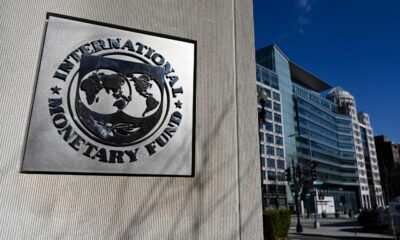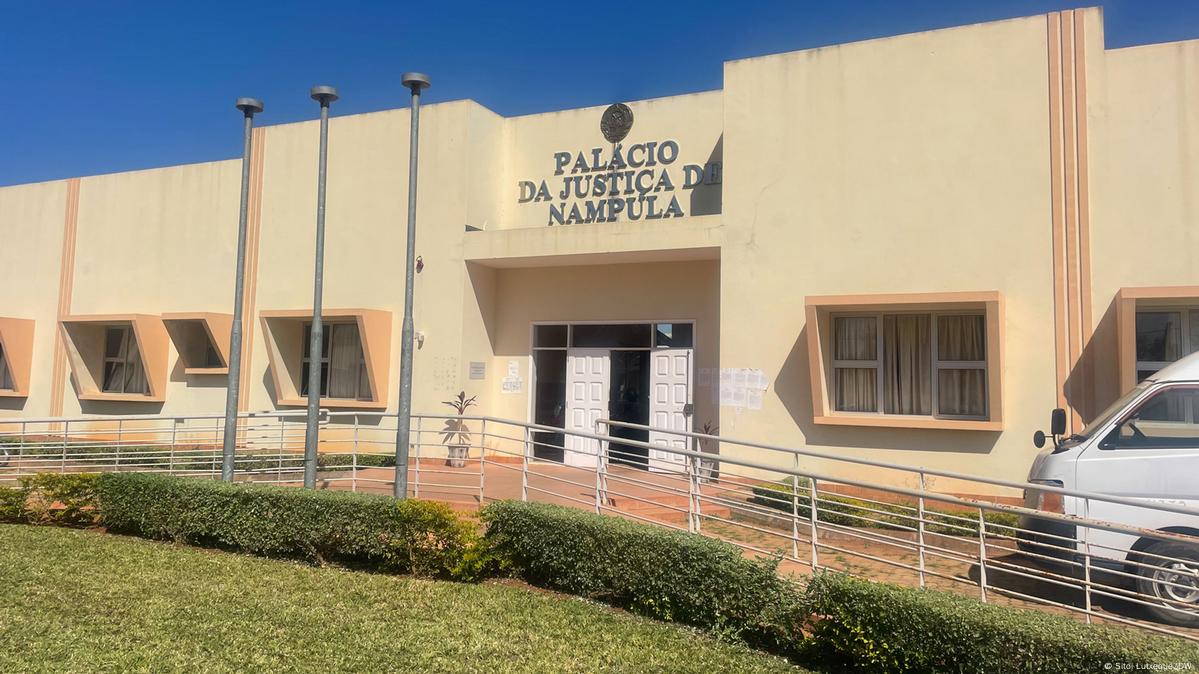Politics
All you want to know about Egypt’s silence on 2013 murder of 817 protesters in one day
Published
6 years agoon
Egyptian authorities have failed to investigate or prosecute a single member of the security forces five years after their systematic and widespread killing of largely peaceful protesters in Rab’a Square in Cairo, Human Rights Watch said.
Hundreds of protesters have been convicted under unfair charges in mass trials stemming from the protests.
Security forces killed at least 817 protesters within a few hours on August 14, 2013, as they violently dispersed the sit-in at Rab’a al-Adawiya, the main gathering of protesters demanding the reinstatement of President Mohamed Morsy, whom the army overthrew and arrested on July 3, 2013.
The comprehensive failure to investigate the largest mass killings in Egypt’s modern history, which probably amounts to crimes against humanity, reinforces the urgent need for an international inquiry.
Egypt recently issued a law to “immunize” senior military officers from being questioned for potential violations following Morsy’s ouster.
“Five years on from the Rab’a massacre, the only response from authorities has been to try to insulate those responsible for these crimes from justice,” said Sarah Leah Whitson, Middle East director at Human Rights Watch. “The response from Egypt’s allies to the crimes at Rab’a and to the lack of justice for the victims has been complete silence.”
In August 2014, Human Rights Watch released the findings of a year-long investigation into the Rab’a Massacre, its aftermath, and other incidents of mass killings of protesters, based on interviews with over 200 witnesses, on-site investigations immediately after the attacks began, and a review of hours of video footage, physical evidence, and statements by public officials.
Human Rights Watch concluded based on this evidence that “the killings not only constituted serious violations of international human rights law, but likely amounted to crimes against humanity, given both their widespread and systematic nature, and the evidence suggesting the killings were part of a policy.”
Read Also: American weapons for Morocco fuel fears of arms race in North Africa
On July 26, President Abdel Fattah al-Sisi approved Law No.161 of 2018 on the “treatment of the armed forces’ senior commanders,” which empowers the president to grant military commanders ministerial status and “diplomatic impunity” when traveling outside the country to shield them from accountability.
The law also grants these officers “immunity” from prosecution or questioning for any event between July 3, 2013, and January 2016, unless the Supreme Council of Armed Forces gives permission.
Existing Egyptian law only allows military prosecutors, who are part of the Defense Ministry, to pursue investigations against current or former army officers, adding another layer of local impunity for military staff.
The Egyptian army overthrew former President Morsy on the heels of mass anti-government protests on June 30, 2013. Morsy supporters responded with protests throughout Egypt and gathered in two main squares in Cairo, Rab’a and al-Nahda. Human Rights Watch documented in detail six incidents in which security forces unlawfully opened fire on masses of largely peaceful protesters, between July 3 and August 16. At least 1,185 people died.
Despite generally exonerating security forces, several official statements and reports accused the police of using excessive force. The prime minister who supervised the dispersal, Hazem al-Beblawy, said in response to the 2014 Human Rights Watch report that “anyone who committed a mistake … should be investigated.”
On December 13, 2013, interim President Adly Mansour established a fact-finding committee to collect “information and evidence” on the events that accompanied the June 30 protests. The committee, which included law professors and former government executives, lacked any judicial powers.
The committee released an executive summary on November 26, 2014, in which it largely blamed protest leaders for the casualties in Rab’a for allowing arms inside the protest, but also admitted that security forces failed to target only people who were armed. The committee also found fault with the unarmed protesters, because they remained at the sit-in knowing that some protesters were armed. The full report is yet to be made public.
On March 6, 2014, Egypt’s National Council for Human Rights (NCHR) released a report on the Rab’a dispersal saying that some protesters were armed and resisted security forces, which compelled them to use lethal force. However, the report also said that there was a “disproportionate response” and “excessive use of force by security forces,” and that security forces failed to maintain a safe exit for protesters willing to leave or to provide medical aid for the wounded.
Both the committee and the NCHR demanded that victims who “did not participate in violence” be compensated. The NCHR also called for an independent judicial investigation.
On July 28, 2018, following an unfair mass trial, the terrorism chamber in the South Cairo Criminal Court issued preliminary death sentences for 75 defendants in the Rab’a dispersal case. Over 739 defendants, roughly half of them in custody, have been tried in the case. The final verdict is due on September 8. Defendants face charges of premeditated murder, attacking citizens, resisting authorities, destroying public property, and possessing firearms and Molotov cocktails.
Defendants include protesters, Muslim Brotherhood leaders, journalists, and children. Several members of security forces who participated in the violent dispersal were called as witnesses, yet prosecutors did not question any of them on excessive use of force or the deliberate or indiscriminate killing of unarmed protesters.
On January 9, 2018, the Giza Criminal Court for major offenses sentenced 23 protesters to life in prison, 223 to 15 years in prison, and 22 others to 3 years in prison, while 109 were acquitted in the case stemming from al-Nahda Square sit-in dispersal. The defendants faced charges similar to those in the Rab’a sit-in case. No member of the security forces involved was questioned.
On September 18, 2017, a criminal court held in Wadi al-Natroun prison issued the verdict in the case stemming from dispersing pro-Morsy protesters at al-Fath Mosque in Cairo two days after the Raba’ dispersal. The court issued prison sentences that ranged from three years to life in prison against 335 defendants, while acquitting 52. Among those found not guilty was an Irish citizen, Ibrahim Halawa, and three of his sisters.
In addition to the failure to investigate security forces’ mass killings, the authorities failed to meet requirements of article 241 of the Egyptian Constitution that required issuing a transitional justice law during the first parliamentary session in 2016. The article says that the law should guarantee “disclosure of truth, accountability, proposals for national reconciliation frameworks, and compensation for victims in accordance with international standards.”
“Without justice, Rab’a remains an open wound. Those responsible for the mass killings of protesters shouldn’t count on being able to shield themselves from accountability forever,” Whitson added.
You may like
-


Egypt’s central bank maintains overnight rates
-


IMF, Egypt reach agreement for fourth review of Egypt’s $1.2 billion loan request
-


Egyptian court upholds ex-presidential candidate Ahmed Tantawy’s sentence
-


Seeking to expand ties in Africa, Indonesia’s Prabowo attends D-8 economic meeting in Egypt
-


Salah wins 6th EPL Player of the Month award
-


Egypt’s November inflation drops to 25.5%, near 2-year low
Politics
Mozambique’s top court affirms governing party’s victory in recent election
Published
4 weeks agoon
December 26, 2024
The highest court in Mozambique affirmed Monday that the incumbent Frelimo party won the October election, sparking widespread demonstrations from opposition parties who claim the vote was manipulated.
Fears of fresh bloodshed have been raised in the nation already shaken by weeks of fatal protests after Mozambique’s top electoral court mostly confirmed the results of the country’s contentious October elections, reinforcing the Frelimo party’s decades-long hold on power.
The final decision on the election process rests with the Constitutional Council. Mozambique, a nation of over 35 million people in Southern Africa that Frelimo has ruled since 1975, is expected to see more protests in response to its judgement.
Mozambique operates a framework of a semi-presidential representative democratic republic in a multi-party system. The president of Mozambique serves as both the head of state and the head of government.
The government exercises executive power. The administration and the Assembly of the Republic have the authority to enact laws.
Politics
Alliance of Sahel States opposes ECOWAS disengagement schedule
Published
4 weeks agoon
December 26, 2024
The Economic Community of West African States (ECOWAS) withdrawal timeline has been rejected by the Alliance of Sahel States (AES), which is made up of Mali, Burkina Faso, and Niger.
The AES claims that the ECOWAS is attempting to destabilise their newly formed organisation.
During a meeting last week in Abuja, Nigeria, the regional organisation announced a six-month withdrawal period to give the three nations time to change their minds after their official departure date at the end of January 2025.
However, this decision is “nothing more than yet another attempt by the French and its auxiliaries to continue planning and carrying out destabilising actions against the AES,” according to the heads of state of the AES.
“This unilateral decision is not binding on the ESA countries,” the statement continues. Before the conference, they stated that their choice to leave the organisation was “irreversible.”
According to the president of the Ecowas Commission, this will be a “transition period” that ends on “July 29, 2025” to “keep the doors of Ecowas open.”
The three nations accused the bloc of neglecting to assist them in resolving their domestic security challenges and of imposing “inhumane and irresponsible” sanctions related to the coup.
The three nations that were involved in the coup have mostly rejected ECOWAS’ attempts to undo their withdrawal. They are creating their alliance and have begun thinking about how to issue travel passports independently of ECOWAS.
It is anticipated that they will finish giving their one-year notice of departure in January.
Visa-free travel to other ECOWAS members is a significant perk of membership, and it is unclear how this would alter after the three nations exit the group.
EDITOR’S PICK


Nigeria: Marketers predict further price cut as another refinery begins operations
Oil marketers and the Nigerian Midstream and Downstream Petroleum Regulatory Authority expect refined petroleum product prices to reduce as another...


Kenya: Consumer inflation rises to 3.0% from 2.8%
Kenya’s statistics agency said on Tuesday that Kenya’s consumer price inflation increased slightly to 3.0% year-over-year in December from 2.8%...


South Africa’s Transnet’s half-year deficit hits $117m
Transnet, a state-owned logistics company in South Africa, announced on Tuesday that it had lost 2.2 billion rand ($117.48 million)...


Nigeria, China extend $2bn currency swap deal
A 15 billion yuan ($2 billion) currency-swap arrangement between China and Nigeria has been extended to boost investment and commerce...


Egypt’s central bank maintains overnight rates
As anticipated, Egypt’s central bank has maintained its overnight interest rates, stating that although inflation was predicted to drop significantly...


Illicit flows cost Nigeria, others $1.6bn daily— AfDB
According to the African Development Bank (AfDB), illicit money flows and profit shifting by multinational corporations doing business in Africa...


‘Don’t start what you can’t finish’, ex-Nigerian official replies President Tchiani
Former Nigerian Aviation Minister, Femi Fani-Kayode, has told President Abdourahamane Tchiani of Niger Republic to refrain from making infantile and...


Again, Starlink raises prices of its services in Nigeria
Elon Musk’s satellite internet service provider, Starlink, has again jacked up the prices of its services in Nigeria after an...


Former President of Moroccan club Raja sentenced to 3 years in prison
The former President of Moroccan top club, Raja Casablanca, Mohamed Aouzal, has been sentenced to three and a half years...


Zambia announces second case of Mpox as country battles cholera outbreak
The Zambian Ministry of Health has reported a second case of Monkeypox, popularly known as Mpox, in Kitwe region of...


